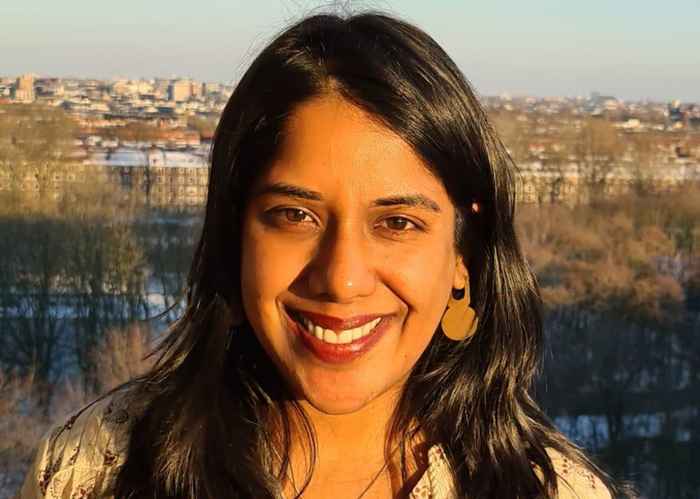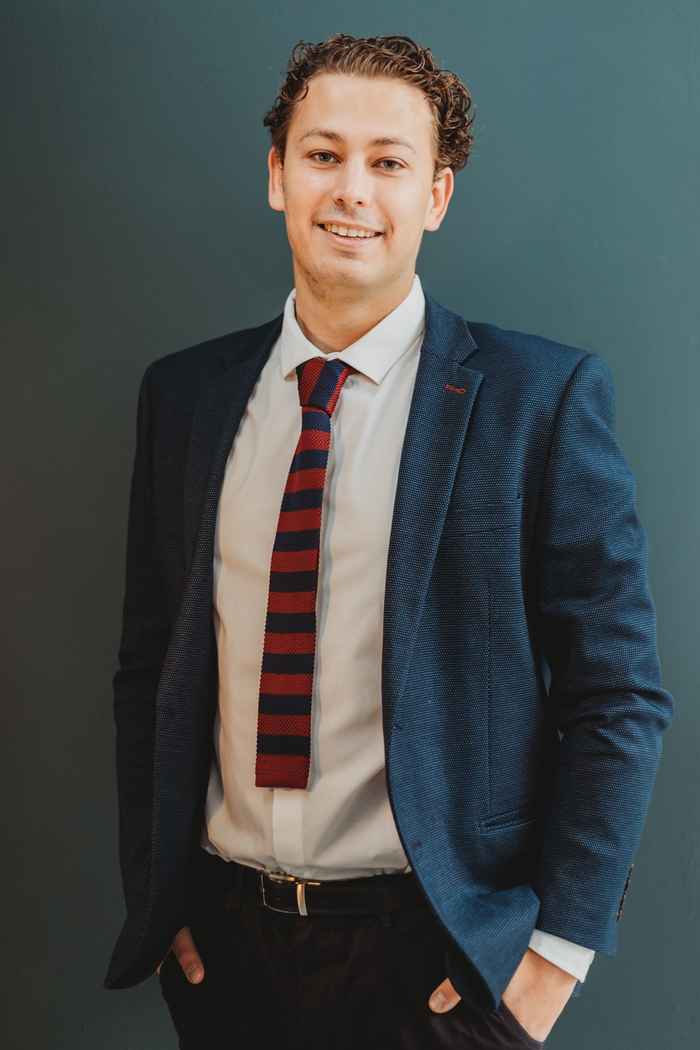'International tax law is quite a challenging area of law'
Andreas and Drishti, alumni 2020/2021


Andreas: 'I was born in a small country called Namibia situated in southern Africa. My home languages are German and Afrikaans, so I hope to pick up Dutch very quickly during my stay in Amsterdam. After my graduation from a German high school, I moved to South Africa to study law at the University of Pretoria and thereafter completed my LLM at the University of Stellenbosch. During my time at Stellenbosch, I discovered an interest in international tax law and decided to specialize in it and to pursue a second degree.'
Drishti: 'I am a lawyer from Mauritius. I previously studied at Bristol University, and was called to the Bar in England. I studied the Advanced LLM in International Civil and Commercial law at Leiden University before embarking on this Advanced Master's at the UvA. I chose to further specialize in international taxation because it is a very specific, expanding area of law. As it involves the study of law, economics and accounting, it is a perfect blend for lawyers who like numbers, like me. I was drawn to this programme in tax law because it is very practice-oriented and furthers one’s knowledge of taxes.'
Why the Interntional Tax Law programme?
Andreas: 'The programme has an established reputation and it is a privilege to be granted this opportunity to research and study here. The alumni of this course always referred to the high amount of personal interaction and group work and this has also been my experience so far, which I rate highly. Also, what swayed my decision was their well-organized response to the global pandemic. Their preliminary outline on how classes would be presented during the semester provided me with certainty in light of the imposed travel restrictions.'
Drishti: 'I chose this programme mainly because of the latter’s high ranking in the top 10 best LLMs in international tax in the world. The programme also came highly recommended by some international tax practitioners I spoke to. Despite the uncertainties with the pandemic, the lecturers and coordinators had already put in place a clear structure before even starting university, which was really reassuring as I knew exactly what to expect. We even had meetings with them every two months before the start of the courses, which for me shows their true commitment to the programme.'
Experiences
Andreas: 'International tax law is quite a challenging area of law and therefore I would say that the course is demanding and requires a lot of hard work and dedication. But it was also a very rewarding experience. Of course, studying online made it a bit more challenging but it was definitely an interesting experience to study online! Also, the interaction and exposure to people from different cultures and backgrounds has been amazing.'
Drishti: 'Even though studying online was undeniably different from a physical class, the courses had been tailored in such a way that they were in fact very interactive. We have had a lot of support and resources from the university and from our lecturers, which ultimately made the learning environment quite enjoyable. For example, we had a lot of discussions with our friends and lecturers in breakout rooms, so much so that you sometimes do not even see time passing by. Also, we created some online group study sessions, which made it more interesting for us as students.'
Contact with professors and students
Andreas: 'Although the programme was offered entirely online for more than 6 months, it was structured in a way to ensure a lot of interaction between students and lecturers. This meant that you would have lectures as usual, but with group work in Zoom breakout sessions at the end of each lecture. For the tax treaty negotiations course, I remember that we were divided into groups and I spent a lot of late nights working on the project with my group, which was a lot of fun. And of course, it is frustrating that you cannot meet up with your classmates for a coffee or beer!'
Drishti: 'All the lecturers at UvA were very approachable. You can discuss anything at all with them, be it personal, professional or emotional. They take time outside their office hours to help you increase your understanding of tax laws, practices or guide you in your professional career such as getting internships or reviewing your resumés. I also made some really good friends from all around the globe, from Brazil to Russia. In these hard times, amongst students, we tried to help each other via Zoom calls or WhatsApp calls, even without having met each other.'
Trends in Tax Law
Andreas: 'The influence of the Principal Purpose Test and BEPS Action Plan 6 on case law. It will be interesting to observe how the courts in different jurisdictions will interpret the treaty GAAR.'
Drishti: 'The taxation of the digital economy was already a huge topic of discussion before but now, with the pandemic, it has become even more important and relevant for countries, be it at the micro or macro level.'
How was the application procedure?
Andreas: 'The application process went extremely smoothly. I think for non-EU students it is important to apply early for visa purposes.'
Drishti: 'The application procedure was straight-forward and easy. However, I would strongly recommend getting yourself up to date with the current issues surrounding the international tax world before starting the course. I would also suggest starting the application for accommodation early because it is generally hard to find a place to live in Amsterdam.'